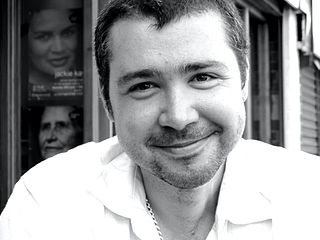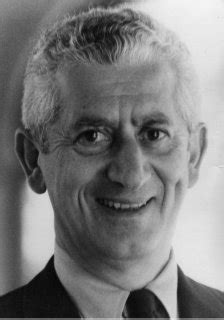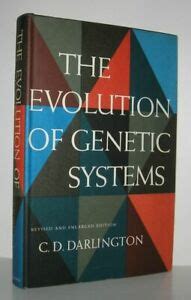A Quote by Herbert Spencer
If a single cell, under appropriate conditions, becomes a man in the space of a few years, there can surely be no difficulty in understanding how, under appropriate conditions, a cell may, in the course of untold millions of years, give origin to the human race.
Related Quotes
In science there is something known as a stem cell. A stem cell is an undifferentiated cell which has not yet decided whether it's gonna be a cell of your brain or a cell of your heart or of your finger nail. But science is learning how to coax, how to manipulate, the raw material of life that we call stem cell to become any cell of the body. I think that God is the stem cell of the universe.
Confusion conditions activity, which conditions consciousness, which conditions embodied personality, which conditions sensory experiences, which conditions impact, which conditions mood, which conditions craving, which conditions clinging, which conditions becoming, which conditions birth, which conditions aging and death.
It has always been the case that people on out-of-work benefits have to apply for more or less any job they can reasonably be expected to take. But the operative word there is 'reasonable,' because a job that's appropriate for a single, able bodied 22-year-old man may very well not be appropriate for a single mum who can't afford childcare.
Every cell in our body, whether it's a bacterial cell or a human cell, has a genome. You can extract that genome - it's kind of like a linear tape - and you can read it by a variety of methods. Similarly, like a string of letters that you can read, you can also change it. You can write, you can edit it, and then you can put it back in the cell.
One metaphor for how we are living is that you see so may people with cell phones. In restaurants, walking, they have cell phones clamped to their to heads. When they are on their cell phones they are not where their bodies are...they are somewhere else in hyperspace. They are not grounded. We have become disembodied. By being always somewhere else we are nowhere.
Cell genetics led us to investigate cell mechanics. Cell mechanics now compels us to infer the structures underlying it. In seeking the mechanism of heredity and variation we are thus discovering the molecular basis of growth and reproduction. The theory of the cell revealed the unity of living processes; the study of the cell is beginning to reveal their physical foundations.









































